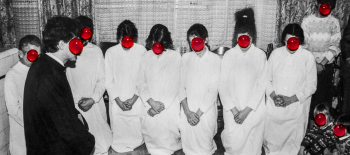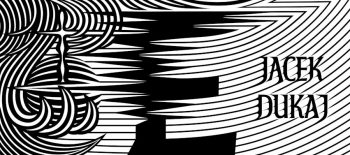One of Europe’s greatest recent poets is also its wisest, wittiest, and most accessible. Nobel Prize winner Wisława Szymborska draws us in with her unexpected, unassuming humour. Her elegant, precise poems pose questions we never thought to ask. “If you want the world in a nutshell,” a Polish critic remarks, “try Szymborska.” But the world held in these lapidary poems is larger than the one we thought we knew.
Carefully edited by her long time, award winning translator, Clare Cavanagh, the poems in Map trace Szymborska’s work until her death in 2012. Of the approximately two hundred and fifty poems included here, nearly forty are newly translated; thirteen represent the entirety of the poet’s last Polish collection, Enough, never before published in English. Map is the first English publication of Szymborska’s work since the acclaimed Here, and it offers her devoted readers a welcome return to her “ironic elegance” (The New Yorker).
Wisława Szymborska
(information sourced from the Polish Book Institute)
Born in Bnin (near Poznań) in 1923, throughout her life she was connected with Cracow, where she studied and where she lived and worked until her death in 2012. A poet and essayist, she won the Nobel Prize for Literature in 1996. She became world famous thanks to translations published in English, French, German, Dutch, Spanish, Czech, Slovak, Swedish, Bulgarian, Albanian and Chinese.
Szymborska’s work represents a puzzling phenomenon: she electrifies her readers despite being modest, introverted, discreet and hushed. The simplicity of her poetry defies the theorizing of scholars while unerringly zeroing in on the tastes of contemporary readers. Szymborska reaches out to her readers over the heads of critics and without the help of the mass media. Her poetry collections sell in numbers usually associated with popular novels. What accounts for Szymborska’s popularity and success? An individual style, an otherness and an exclusivity understood as a creative condition and an existential autonomy. Never associating herself with any poetical school, she has created her own craft of writing and her own language that maintains its distance from great historical events, the biological conditioning of human existence, the social role of the poet, and also from philosophical systems, ideologies, truths taken on faith, habits, stereotypes and inhibitions. It is also a language of compassion for those who have been wronged, of delight at the beauty of human life with its keen beauty, illogicality and tragedy. It is a language of well-considered judgements and muffled emotions, a language of lyricism controlled by a cold, fresh intellect, a language subjected to intellectual rigor that does not rule out sensitivity to the everyday attractions of existence. It is a language that generally remains faithful to colloquial speech while subtly widening its lexical resources. It is a language of paradox, apparently simple but in fact refined and idiosyncratic. Szymborska wrote sparingly; she is reckoned to have written no more than 250 poems. Perhaps this accounts for the fact that almost every one is a masterpiece. At least since the mid-1950s, Szymborska has held a place among the very finest Polish and European poets.
Other English translations of Szymborska’s work
View with a grain of sand [Widok z ziarnkiem piasku], trans. Clare Cavanagh, Stanisław Barańczak, New York, San Diego: Harcourt Brace, 1995; London: Faber and Faber, 1996
People on a Bridge, trans. Adam Czerniawski, Londyn: Forest Books, 1990; II wyd. Londyn 1996
Poems New and Collected 1957-1997, trans. Clare Cavanagh i Stanisław Barańczak, Harcourt, 2000
Miracle Fair: Selected Poems, trans. Joanna Trzeciak, W. W. Norton, 2001
Nonrequired Reading: Prose Pieces, trans. Clare Cavanagh, Harcourt, 2002
Monologue of the Dog, trans. Clare Cavanagh i Stanisław Barańczak, Harcourt, 2005
Here [Tutaj], trans. Clare Cavanagh i Stanisław Barańczak, Harcourt, 2011
Map: Collected and Last Poems
By Wisława Szymborska
Edited by Clare Cavanagh
Translated by Clare Cavanagh and Stanisław Barańczak
Published by Houghton Mifflin, June 2015
ISBN: 978-0544126022
Order online



